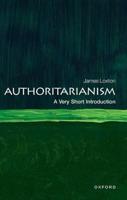Publisher's Synopsis
This first volume in the SADET series encapsulates the political developments of the watershed decade of 1960 to 1970. The reprint is testimony not only to the popularity of this volume, but also to its importance as a resource on the history of the South African struggle for liberty for all. Developments such as the Sharpeville massacre marked a turning point that was to shape the future of South Africa: prior to this tragic occurrence, the struggle had been characterised by passive resistance, by way of demonstrations and defiance campaigns. With this book series, SADET sets out to examine and analyse events leading to the negotiated settlement and democracy in this country. As explained in the first edition: `The series has the advantage of recording the voices of some of those who were the makers of history. Those who made the history must thus have the opportunity to participate in the process of recording that history in words, and [to] interpret it as they see it.' This thoroughly researched volume grew from a collaboration between some of the most brilliant historians in South Africa and elsewhere around the globe. Insights are given and accounts reflect on such developments as the establishment of the apartheid policy and resistance to it; popular uprisings in the townships; the prohibition of political parties and life in exile; the start of the armed struggle and ensuing conflicts; parliamentary and extra-parliamentary liberal opposition to the system; the political trials and incarceration of leaders; and pressure from the international community to bring about change. In line with SADET's vision, this volume unearths new insights, supported by previously untapped documentary sources and oral accounts of the struggle for democracy. The volume offers a rich literature on resistance to apartheid; consolidated into sixteen chapters and packed with records chronicling our arduous past. The book covers most of the organised forces and formations that resisted the apartheid system; some of which changed form, while others were crushed by the unforgiving evolution of historical developments (perhaps they could be said to have completed their full life-cycle?).








